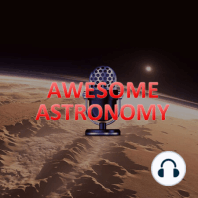65 min listen
#106 - April 2021 Part 1
ratings:
Length:
64 minutes
Released:
Mar 31, 2021
Format:
Podcast episode
Description
The Discussion: Jen finally becomes Dr Jen – bow down pitiful Earthlings! Binocular astronomy Get the book Vera Rubin - A Life by Jacqueline and Simon Mitton with 25% off by emailing cs-books@wiley.com, and quoting the discount code H0350 (mentioning Awesome Astronomy probably wouldn’t go amiss too) Emails from listeners correcting a possible error and posing a teasing question about US refractors. The News: Rounding up the astronomy news in February, we have: UCL researchers unravel the mystery of the Antikythera mechanism The Event Horizon Telescope improves the image of a supermassive black hole by revealing its magnetic fields Confirming the existence of the furthest major solar system object An exoplanet that lost its atmosphere and then gained another one! Main News story: CERN’s LHC spots a quirky quark that hints at a big anomaly in the Standard Model of Physics The Sky Guide: This month we’re taking a look at the constellation of Coma Bereneces with a guide to its history, how to find it, a couple of deep sky objects and a round-up of the solar system views on offer in April. Q&A: You mentioned recently that a comet was a long period comet? What does this mean? How do we know if a comet is a long period comet? From our good friend Arliss Evans in Texas, USA.
Released:
Mar 31, 2021
Format:
Podcast episode
Titles in the series (100)
#9 - January 2013: A (very) large quasar group, 2013 Solar System highlights, Dawn's dance with Vesta and a very astrobiological interview by AWESOME ASTRONOMY
